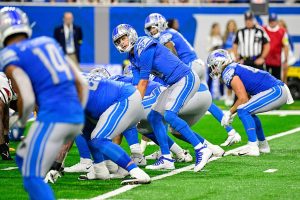On January 17, the U.S. Supreme Court heard oral arguments in Relentless v. Department of Commerce that asked the courts to decide whether the Chevron doctrine – a legal theory used by lower courts – should be tossed out. What the Court decides will have immediate impacts on both businesses and government regulators.
Ironically, it was business interests that got the Chevron doctrine established in 1984 and may also be what overturns it today. Here is what you should know about the case before the ruling is decided.
What is the Chevron doctrine?
The Chevron doctrine, or the Chevron deference, comes from a 1984 U.S. Supreme Court Ruling in Chevron U.S.A., Inc. v. Natural Resources Defense Council, Inc. that holds “a government agency must conform to any clear legislative statements when interpreting and applying a law, but courts will give the agency deference in ambiguous situations as long as its interpretation is reasonable.”
The case revolved around the interpretation of the word “source” in the Clean Air Act of 1963. An amendment in 1977 made it so that any industry project that created a major “stationary source” of air pollution was required to go through a “new-source review” process. However, in 1981 when the Environmental Protection Agency (EPA) changed its definition of “source” to make it easier for companies to build new projects without going through the new lengthy review process, an environmentalist group challenged the legality of the EPA’s decision.
In an opinion written by Ruth Bader Ginsburg – then a U.S. circuit judge – ruled in favor of the environmentalist group and that the EPA’s new interpretation of the term was invalid. As Chevron Corp. was one of the businesses impacted by that decision, the company intervened in the case and appealed to the Supreme Court which ultimately ruled in its favor setting the Chevron doctrine as precedent.
Why does Relentless want the doctrine tossed out?
Relentless Inc. is one of several fisheries in New England that is pushing back against a government regulation that requires government monitors to accompany vessels on fishing trips. In 2017, the council that oversees herring fishing in the Atlantic – The New England Fishery Management Council – adopted new rules that required domestic fishing vessels to pay the salaries of these monitors instead of the government.
Relentless argues that this new rule puts an unfair burden on their unique business model and that the National Marine Fisheries Service (NMFS) – a branch of the Department of Commerce – does not have the regulatory authority to enact the new requirement.
What does this mean for government regulators?
Even though the Chevron doctrine has been applied less frequently in the past decade, it has been used in thousands of cases since 1984. A Michigan Law Review article in 2017 called it “one of the most cited Supreme Court decisions of all time” and is especially prominent in lower courts which is how it has reached the Supreme Court now. Two lower courts used the legal theory of the doctrine to uphold the NMFS rules noting “the rule is a permissible exercise of the agency’s authority and is otherwise lawful.”
Although the decision on whether to overrule the Chevron doctrine is not expected until this summer, the justices appeared to be skeptical of keeping the ruling as is. Before his appointment to the Supreme Court, Justice Neil Gorsuch wrote in 2016 that Chevron allowed executive branch “bureaucracies” to “concentrate federal power in a way that seems more than a little difficult to square with the Constitution of the framers’ design.”
Some have questioned if overruling the Chevron doctrine could weaken Biden’s climate agenda among other legislation and potentially open up litigation in past cases. The liberal justices expressed concerns of the courts becoming policymakers rather than deferring to agency researchers and experts.







